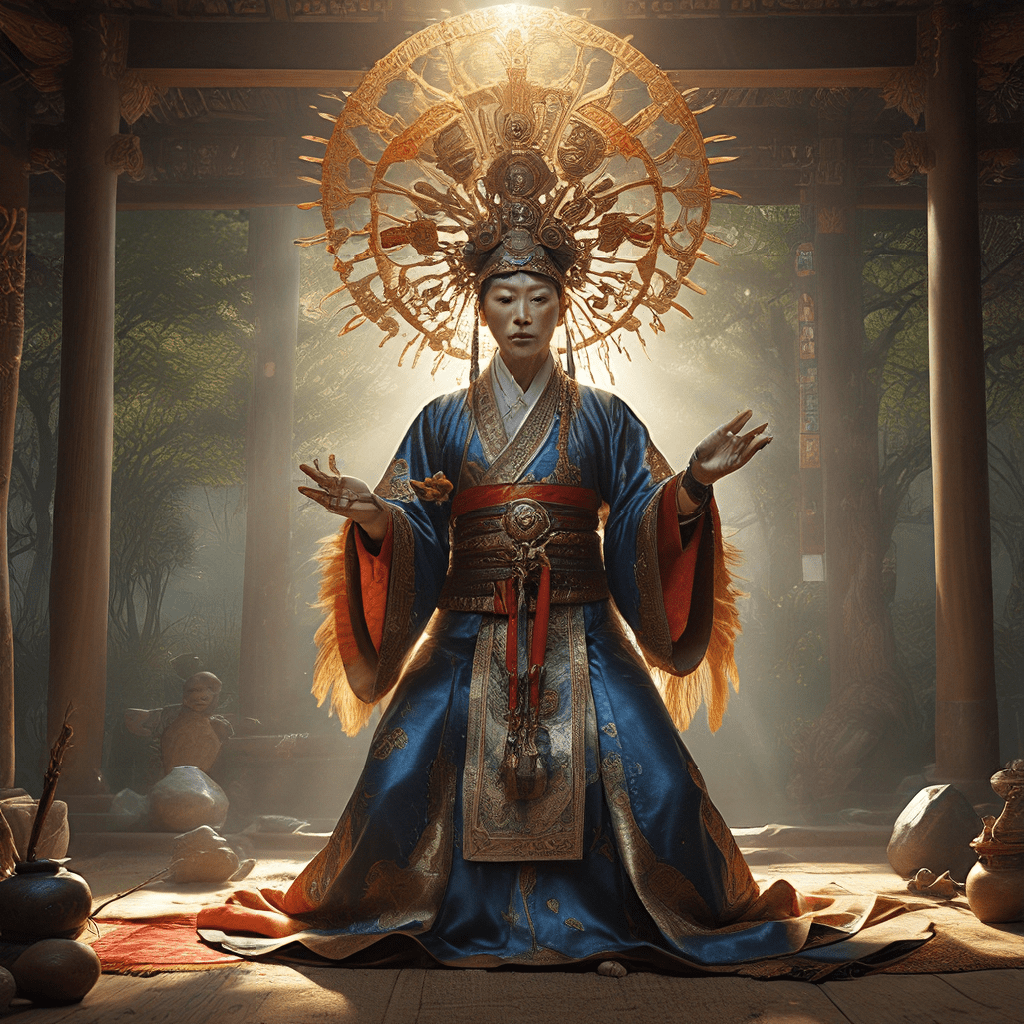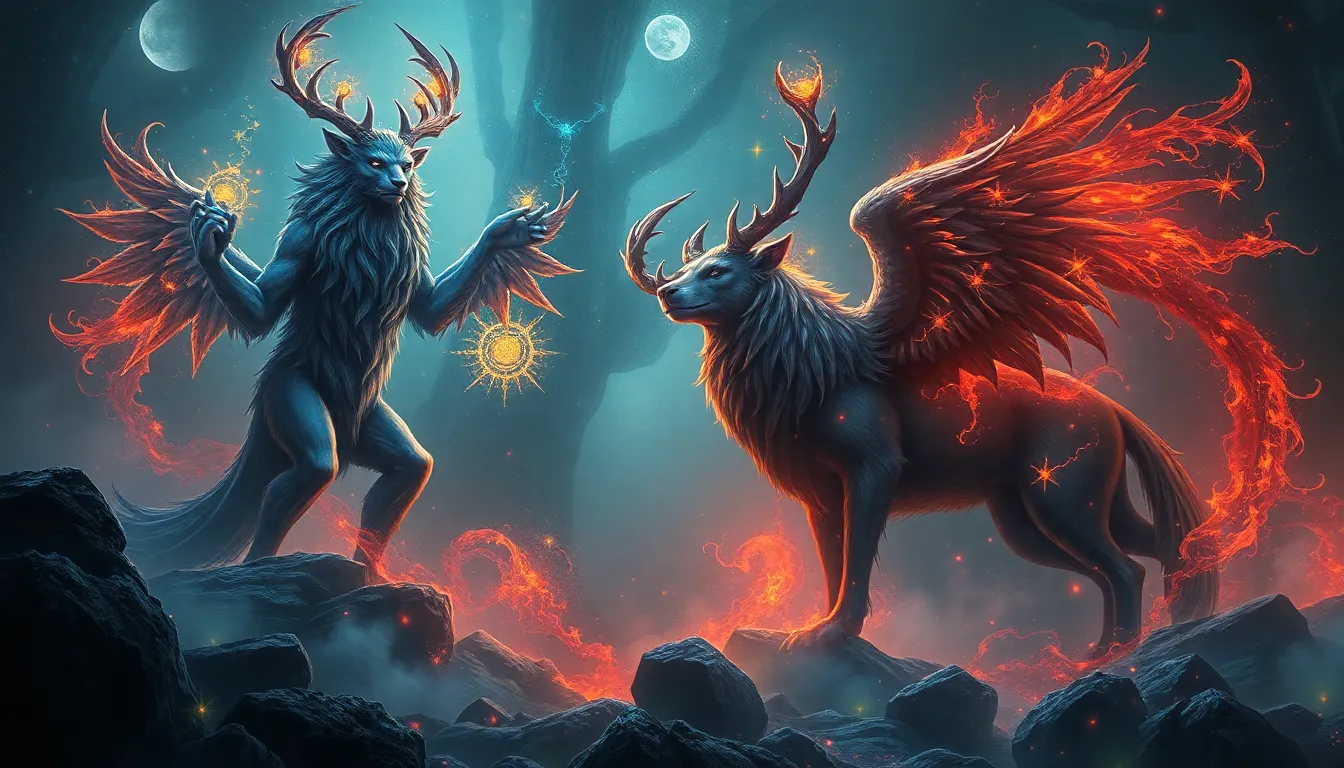The Enchanting World of Indonesian River Mythology
Indonesia, an archipelago nation known for its stunning natural beauty, is also a land rich in captivating mythology and folklore. Among the many elements interwoven into these stories, rivers hold a special place, serving as more than just waterways. They are seen as living entities, imbued with spiritual significance and teeming with mythical creatures. These rivers flow not just across the landscape but also through the very fabric of Indonesian culture, shaping beliefs, traditions, and even the understanding of the universe.
The Significance of Rivers in Indonesian Culture
In Indonesian society, rivers are far more than just sources of water. They are vital lifelines, supporting agriculture, transportation, and daily life. Their importance is deeply embedded in the culture, reflected in art, literature, and ceremonies. Across the archipelago, rivers are seen as pathways connecting communities and representing the flow of time and life itself.
The Mythical Rivers of Java: The Cradle of Ancient Legends
Java, the most populous island in Indonesia, is considered the cradle of many ancient legends. Here, rivers are often woven into tales of gods, spirits, and magical beings. One such river is the Citarum River, known for its connection to the legendary Sunda Kingdom. The river's waters are believed to hold mystical powers, and its banks are said to be haunted by spirits, adding a layer of mystique to the area.
The Flowing Tapestry of Time: The River of Time and its Role in Creation Myths
In Indonesian mythology, the concept of "time" is often embodied in rivers. One of the most prominent examples is the Kali Brantas, a river in East Java. According to legend, this river played a crucial role in the creation of the earth. The river's journey from its source to the sea symbolizes the cyclical nature of time and the continuous flow of life. These stories are often told within the context of the Hindu myth of creation, where the river represents the primordial waters from which the universe emerged.
The River of Souls: The Journey to the Afterlife as Depicted in Indonesian Mythology
Just as rivers connect communities, they are also seen as conduits to the afterlife in Indonesian mythology. The Kali Loro, a river in Central Java, is believed to be the portal to the world of spirits. It’s believed that souls traverse this river after death, with their fate determined by their actions in life. This is a common theme across numerous cultures, but in Indonesia, the river becomes a tangible representation of this spiritual journey.
The Divine Origin of Rivers: Gods and Goddesses Associated with Waterways
In Indonesian mythology, rivers are often seen as extensions of the divine realm. Many deities, particularly those associated with water and fertility, are linked to specific rivers. For example, in the Javanese tradition, the Goddess of the River, known as Dewi Sri, is believed to reside in the Kali Brantas and is responsible for the abundance of rice and prosperity in the region. Other deities, like Bathara Kala, the god of time, are associated with rivers, reflecting their connection to the flow of life and the cycles of nature. These stories, often passed down through generations, imbue rivers with a sacred aura, reinforcing their importance in the local culture.
The Guardians of the River: Mythical Creatures and Spirits of the Waterways
Just as humans inhabit the lands surrounding rivers, Indonesian mythology portrays a diverse array of mythical creatures and spirits dwelling within these waterways. These beings, often linked to the specific river they inhabit, play a vital role in maintaining the river's balance and protecting its sacredness. For example, the Bujang Ganong, a mischievous spirit found in Javanese folklore, is associated with the Citarum River. He is known for his pranks and sometimes assists humans, demonstrating the complex relationship between humans and the supernatural in river lore. These mythological creatures are not merely figments of imagination; they are often invoked in rituals and stories, serving as a reminder of the interconnectedness of humans and the natural world.
The River as a Symbol of Fertility and Abundance
The relationship between rivers and fertility is deeply ingrained in Indonesian mythology and culture. The life-giving force of water is seen as a symbol of abundance and prosperity. This is reflected in narratives where rivers are linked to the harvest, especially of rice, a staple food in the Indonesian diet. The Kali Progo in West Java is one such river, often associated with stories of harvest rituals and the fertility of the surrounding land. The close connection between rivers and agricultural success further solidifies the river's significance in local beliefs and practices.
The Influence of Hinduism and Buddhism on River Mythology in Indonesia
The influence of Hinduism and Buddhism is evident in Indonesian river mythology. The concept of the sacred river, which originates from these religions, is deeply ingrained in many Indonesian narratives. The Kali Brantas, for example, is seen as a sacred river, mirroring the importance of the Ganges River in Hinduism. This influence is also reflected in creation myths, where rivers are often depicted as originating from the heavens or representing the primordial waters, reflecting the Hindu concept of the cosmos. These borrowed ideas have seamlessly integrated into Indonesian mythology, enriching its tapestry with diverse perspectives and narratives.
Interpretations and Theories: Connecting Myth to Reality and History
The mythical stories surrounding rivers in Indonesia are more than just fantastical tales. They provide insights into the culture, history, and ecological understanding of the people. These stories offer a glimpse into the relationship between humans and their environment, highlighting their dependence on and reverence for rivers. Interpreting these myths from an anthropological perspective reveals how they reflect social structures, belief systems, and the importance of nature in shaping Indonesian identity. Moreover, some researchers believe that these mythical narratives hold hidden historical truths, suggesting that ancient civilizations might have had a deeper understanding of their natural world than previously thought.
FAQ
**What is the significance of rivers in Indonesian mythology?**
Rivers are seen as more than just waterways in Indonesian mythology. They are considered living entities, imbued with spiritual significance and teeming with mythical creatures.
Are there any specific rivers that are central to Indonesian mythology?
Yes, rivers like the Citarum, Kali Brantas, Kali Loro, and Kali Progo are associated with various legends and beliefs.
What are some of the mythical creatures associated with rivers in Indonesia?
Mythical creatures like the Bujang Ganong, spirits, and deities are often linked to specific rivers and play a role in maintaining their sacredness.
How does Indonesian river mythology reflect the influence of Hinduism and Buddhism?
The concept of the sacred river, borrowed from Hinduism and Buddhism, is deeply ingrained in many Indonesian narratives.
What is the connection between rivers and fertility in Indonesian mythology?
Rivers are seen as symbols of fertility and abundance, reflecting the life-giving force of water and its connection to harvest and prosperity.



